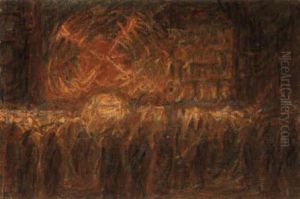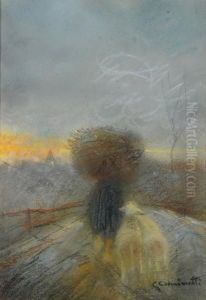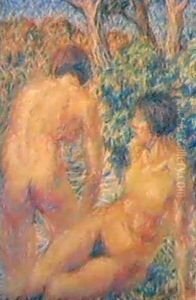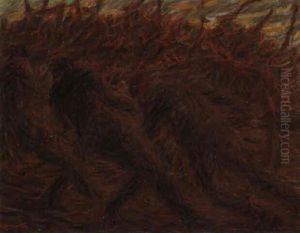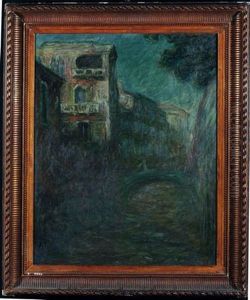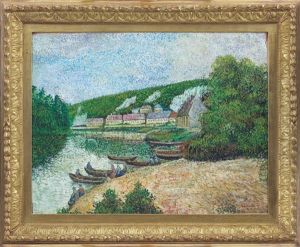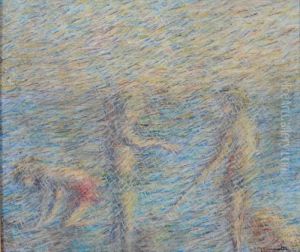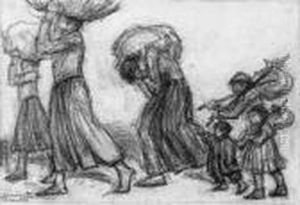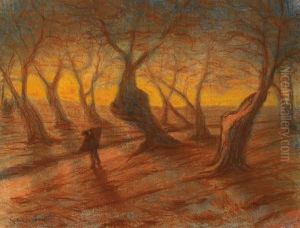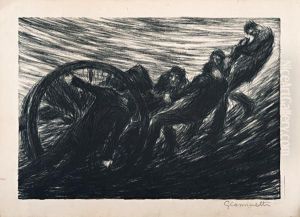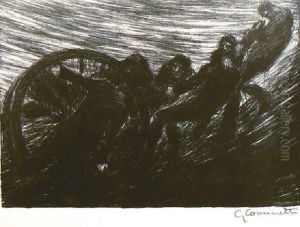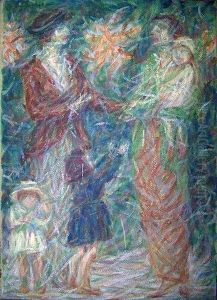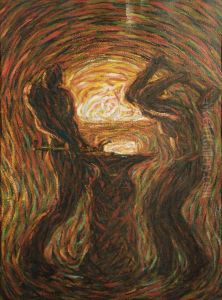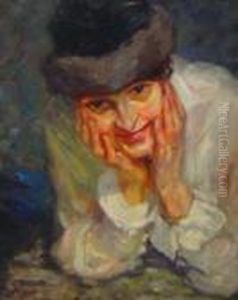Giuseppe Cominetti Paintings
Giuseppe Cominetti was an Italian painter, primarily known for his landscape and genre paintings. Born in 1848 in Lovere, a small town in the province of Bergamo, Lombardy, Cominetti grew up in an environment rich with artistic heritage. This region of Italy, with its picturesque landscapes and historical towns, provided ample inspiration for his future works.
From a young age, Cominetti showed a keen interest in art, and his talents were nurtured through formal education. He studied at the Accademia Carrara in Bergamo, a prestigious institution where he honed his skills and deepened his understanding of art. His education played a crucial role in shaping his artistic style, which combined elements of realism and romanticism.
Throughout his career, Cominetti focused on capturing the beauty of the Italian countryside, its rural scenes, and the daily lives of its inhabitants. His paintings often depicted serene landscapes, pastoral scenes, and quaint village life, characterized by a meticulous attention to detail and a vibrant yet harmonious use of color. Cominetti's ability to convey the mood and atmosphere of a place made his works highly sought after, both in Italy and abroad.
In addition to landscapes and genre scenes, Cominetti also painted historical and religious subjects, although these are less well-known. Despite the diversity of his subjects, his works consistently exhibit a deep appreciation of nature and a dedication to realism.
Cominetti's contributions to Italian art were recognized during his lifetime, and he participated in numerous exhibitions, gaining accolades and commissions. His works are part of several public and private collections, and they continue to be appreciated for their beauty and historical value.
Giuseppe Cominetti passed away in 1919, leaving behind a legacy as one of the prominent landscape painters of his time. Through his paintings, Cominetti captured the essence of the Italian landscape and culture, offering viewers a glimpse into the country's bucolic past and its enduring charm.
